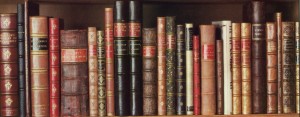 Interested in some historical summer reading? Here are some ideas from our new acquisitions from last month:
Interested in some historical summer reading? Here are some ideas from our new acquisitions from last month:
Ways of regulating drugs in the 19th and 20th centuries / edited by Jean-Paul Gaudillière and Volker Hess. Houndmills, Basingstoke, Hampshire ; New York : Palgrave Macmillan, 2013.
The essays assembled in this volume share the perspective that the historiography of science, technology, and medicine, therefore, needs a broader approach toward regulation; an approach taking into account the distinct social worlds involved in regulation, the forms of evidence and expertise mobilized, and the means of intervention chosen in order to tame drugs in factories, offices, consulting rooms and courts. Focusing on case studies, the volume explores the ‘ways of regulating drugs’, which surfaced in the 19th and 20th century, and play a central role in the present world of science, market and medicine.
Includes a contribution by McGill Social Studies of Medicine prof Alberto Cambrosio (with Peter Keating and Andrei Mogoutov ): “What’s in a Pill? On the Informational Enrichment of Anti-Cancer Drugs.”
The identity of the history of science and medicine / Andrew Cunningham. Farnham, Surrey, England ; Burlington, VT. : Ashgate Variorum, c2012.
From the publisher’s website:
In these essays, Andrew Cunningham is concerned with issues of identity – what was the identity of topics, disciplines, arguments, diseases in the past, and whether they are identical with (more usually, how they are not identical with) topics, disciplines, arguments or diseases in the present. Historians usually tend to assume such continuous identities of present attitudes and activities with past ones, and rarely question them; the contention here is that this gives us a false image of the very things in the past that we went to look for.
The great Manchurian plague of 1910-1911 : the geopolitics of an epidemic disease / William C. Summers. New Haven : Yale University Press, c2012.
The Manchurian plague (or “third pandemic”) was a severe episode of bubonic plague that began in southwest China in the 1850s. Check out a review of this book from the Journal of the History of Medicine and Allied Sciences 68, no. 2 (April 2013) [McGill users only]
Remèdes, onguents, poisons : une histoire de la pharmacie / sous la direction d’Yvan Brohard ; préface et postface d’Axel Kahn. Paris : Université Paris Descartes : Éditions de la Martinière, 2012.
Full of anecdotes and alchemy! Find a discussion with the author Yvan Brohard on the history of pharmacy and medication on the radio show La tête au carré on France Inter.
Inventing intelligence : how America came to worship IQ / Elaine E. Castles. Santa Barbara, Calif. : Praeger, c2012.
Written by a clinical psychologist, this book traces the rise of the IQ test as the key measure of mental capacity, as well as describing historical initiatives to quantify intelligences (phrenology, anyone?). Have a look at a more detailed description on the publisher’s website.
Homöopathie in der DDR : die Geschichte der Homöopathie in der Sowjetischen Besatzungszone und der DDR 1945 bis 1989 ; Hans-Walz-Preisschrift / Anne Nierade. Essen : KVC Verlag, c2012.
This book uncovers the history of homeopathy in the German Democratic Republic. Published as the 2011 winner of a book prize in the history of homeopathy sponsored by the Institute for the History of Medicine of the Robert Bosch Foundation in Germany, this book explores homeopathy as a popular lay medical tradition.
P.S. Ever wondered how to find book reviews? Find some tips here.

